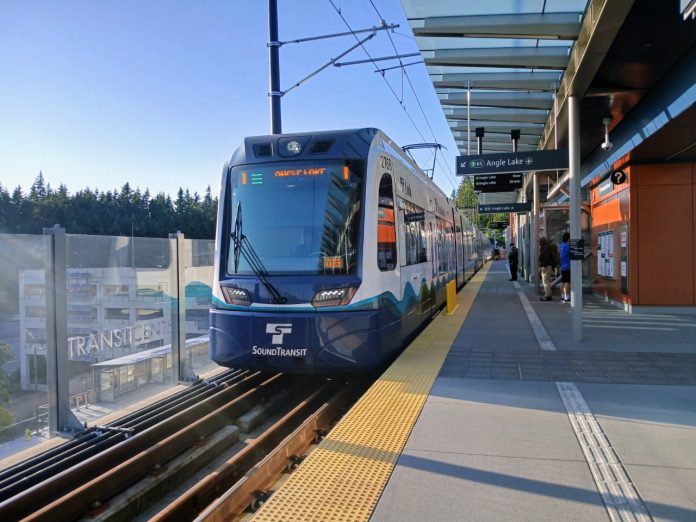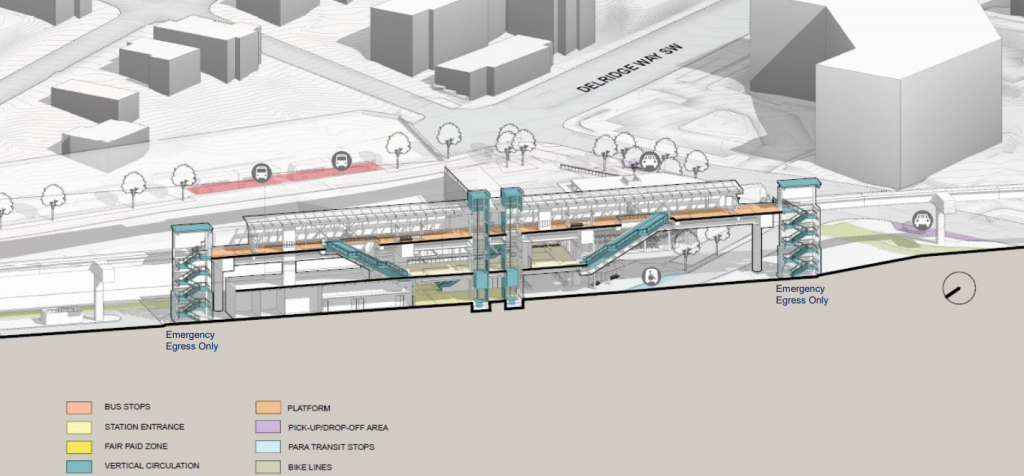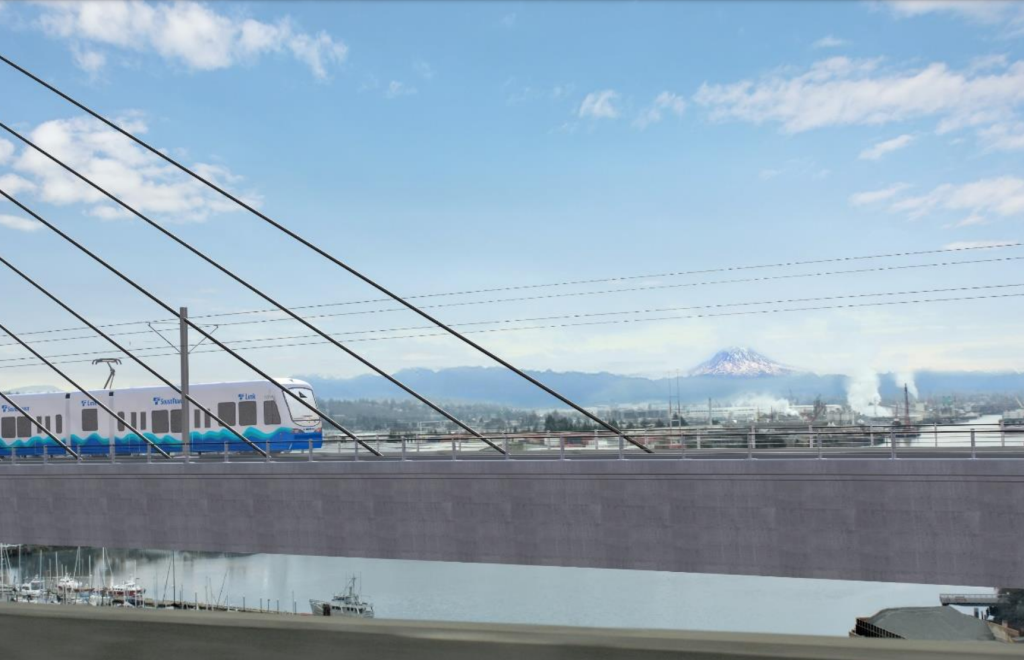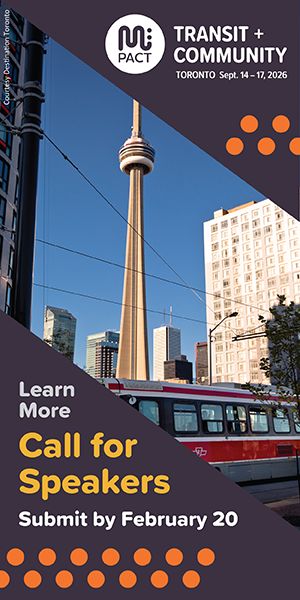
On Wednesday, Seattle Councilmember Maritza Rivera withdrew her amendment heaping new documentation requirements on Sound Transit’s permits tied to light rail construction, as she faced significant opposition from transit advocates. Instead, Council advanced a scaled-back version that simply asks Sound Transit to document its public outreach activities and submit a report to the city as part of a permit application.
The new requirement isn’t expected to add significant cost or delay to projects, in strong contrast with the earlier version of the amendment.
Left unchanged, Rivera’s amendment would have severely weakened a permit streamlining bill proposed by Mayor Bruce Harrell, whose stated intent was to reduce permit timelines for the West Seattle and Ballard Link Extension projects. Overwhelmingly approved by Seattle voters in 2016, the two light rail projects have suffered delays and cost overruns that could ultimately threaten their overall scope and delivery date.
Past permits for Seattle light rail project elements averaged 200 days or more to approve, according to City figures. Harrell’s bill aspired to cut that time to less than 100 days by creating clear development standards that apply across the city and making other updates that anticipate the reality of Sound Transit projects.
But the changes Rivera introduced at the last minute before a planned committee vote last Thursday would have required Sound Transit to create a unique Community Outreach Plan ahead of every permit application. Rivera’s amendment also directed the City of Seattle to report back on how that outreach was incorporated into its final decision. These requirements would have meant adding several wholly unique stages to the permit process just for light rail projects.

The initial amendment was strongly opposed by transit advocates concerned with creating more delays for West Seattle and Ballard Link, when public polling consistently shows that completing light rail within the city faster to be one of the most popular public policies that elected leaders could support.
“Seattle voters have time and time again shown resounding support for transit service and transit system expansions,” an action alert created by Seattle Subway that generated over 1,500 letters noted. “In 2016, Seattle voters overwhelmingly passed Sound Transit 3 with more than 2 to 1 in favor. Seattle voters have already given their stamp of approval for these light rail projects and the City Council should not stand in the way with more red tape, more delays, and more costs.”
After Councilmembers Dan Strauss and Alexis Mercedes Rinck raised issues with the amendment and pushed back a planned vote by a week, five days of negotiations kicked off between councilmembers and members of the mayor’s staff, who sought to walk back the changes. Despite the fact that Rivera had framed her initial proposal as “friendly,” it did not have support of the city’s Sound Transit team, the group tasked with shepherding the light rail projects through city bureaucracy.
“My concerns were affirmed in that the amendment that was presented last week and discussed here in committee would add months of delay and increased cost,” Rinck said Wednesday. “And since then my office has received over 750 emails in opposition to this amendment.”
The amendment that was ultimately approved instead requires Sound Transit to submit a Community Outreach Report (COR) with light rail permits. That report is required to include “impacted stakeholders previously targeted for public outreach in advance of permitting; methods of communication (including print, digital, and in person); purpose and objectives for the outreach; and a summary of public comments,” but nothing specifically ties that outreach to the agency receiving its permit.
An additional provision allowing the Director of the Seattle Department of Construction and Inspections to require additional public outreach to “inform” permit review was stripped out by a 3-2 vote.

Even with the changes, both Strauss and Rinck abstained rather than vote on the ultimate adoption of Rivera’s amendment. Strauss, the only councilmember who serves on the Sound Transit board of directors, cited recent comments by agency CEO Dow Constantine laying out tough financial decisions ahead for the transit agency that could translate into issues delivering West Seattle and Ballard Link.
“The alarm bells are ringing and they are ringing loud,” Strauss said. “We, as the City of Seattle, must do all we can to streamline costs and processes, because Sound Transit is doing the same and because West Seattle’s already double the cost of original estimations and we don’t have final numbers for Ballard but I can only imagine it to be the same.”

In the end, the underlying bill passed out of committee unanimously, with the councilmembers supportive of the Rivera amendment framing it as a commonsense measure intended to protect the city from accusations that Sound Transit isn’t conducting enough outreach on its projects.
“There’s nothing here that we are asking them to do that they’re not already doing,” Moore said. “We’re just asking them to show us their work. Partially, to cover our own backside, because as we saw with the Comp Plan we had a lot of people complain that they weren’t outreached to, and a lot of disagreement over whether that outreach happened or not, and we need to be able to show that we did it. It looks like Sound Transit’s actually doing a really good job, based on what they’ve presented to Councilmember Rivera.”
But Rivera actually went further, questioning the motives of her colleagues in abstaining on her amendment and accusing Strauss and Rinck of trying to hide larger issues that could be impacting Sound Transit’s projects behind her proposal.
“We’ve heard multiple times: no delays, no costs. So at this point, any reticence to vote for this is strictly political and not policy,” Rivera said. “I don’t want this very small amendment that I view as good governance to be the scapegoat for a bigger problem that might be underlying these projects.”
Committee chair Mark Solomon voted against letting the SDCI Director require more public outreach, but ultimately did vote for the Rivera amendment, pointing to Sound Transit’s past outreach around a new light rail station in the Chinatown-International District (CID).
“The purpose of the underlying legislation is to streamline things, to move things forward, to get things on track,” Solomon said. “Understanding that we’re wanting transparency, we want an outreach plan. Because I think about the outreach that was done in the CID regarding station alignment there, and a lot of people feeling like they were not heard.”
The bill is headed for a final vote next Tuesday, where it seems set to pass, in advance of the first set of permits on the West Seattle Link project expected later this year.
Ryan Packer has been writing for The Urbanist since 2015, and currently reports full-time as Contributing Editor. Their beats are transportation, land use, public space, traffic safety, and obscure community meetings. Packer has also reported for other regional outlets including BikePortland, Seattle Met, and PubliCola. They live in the Capitol Hill neighborhood of Seattle.


